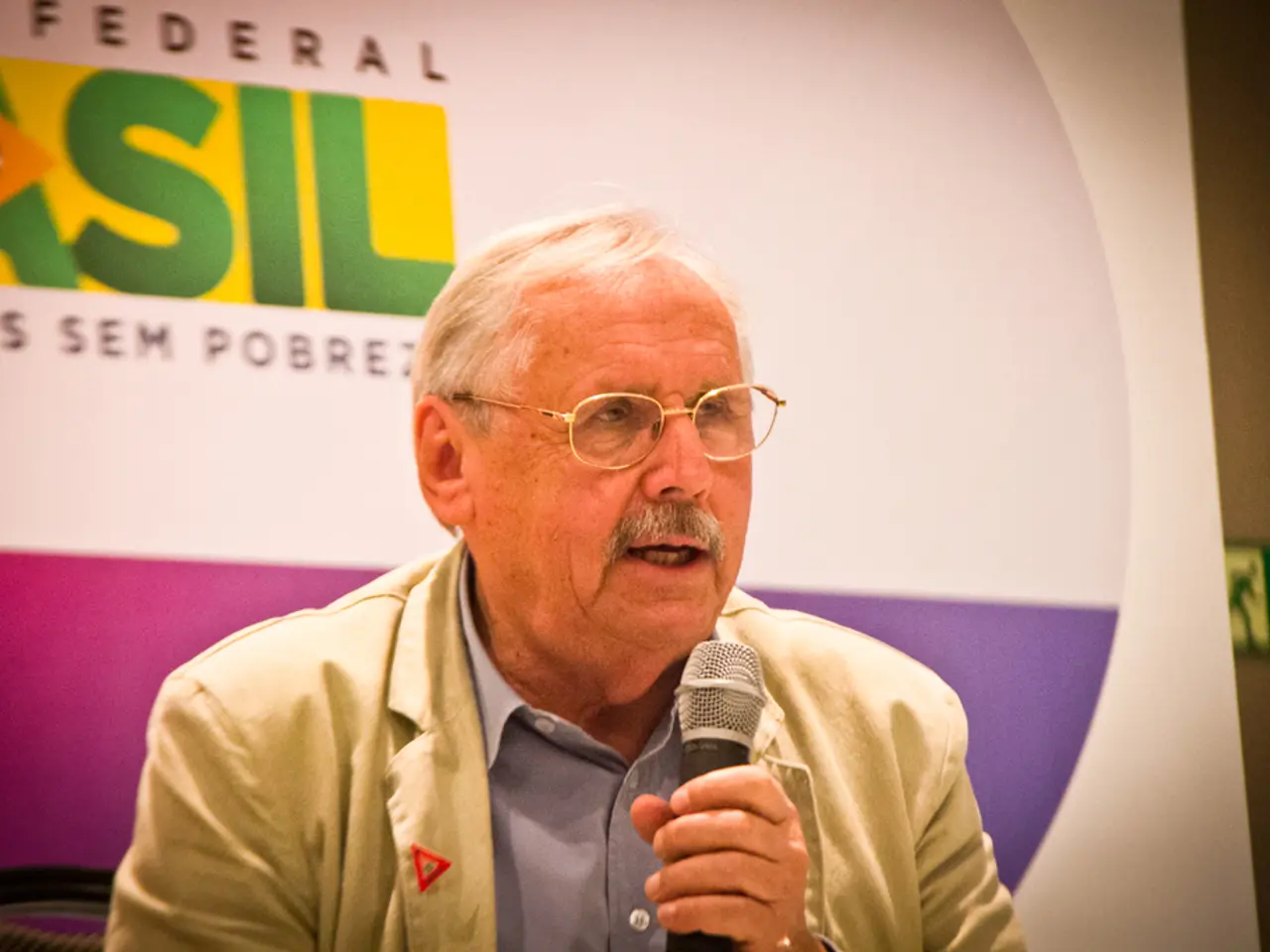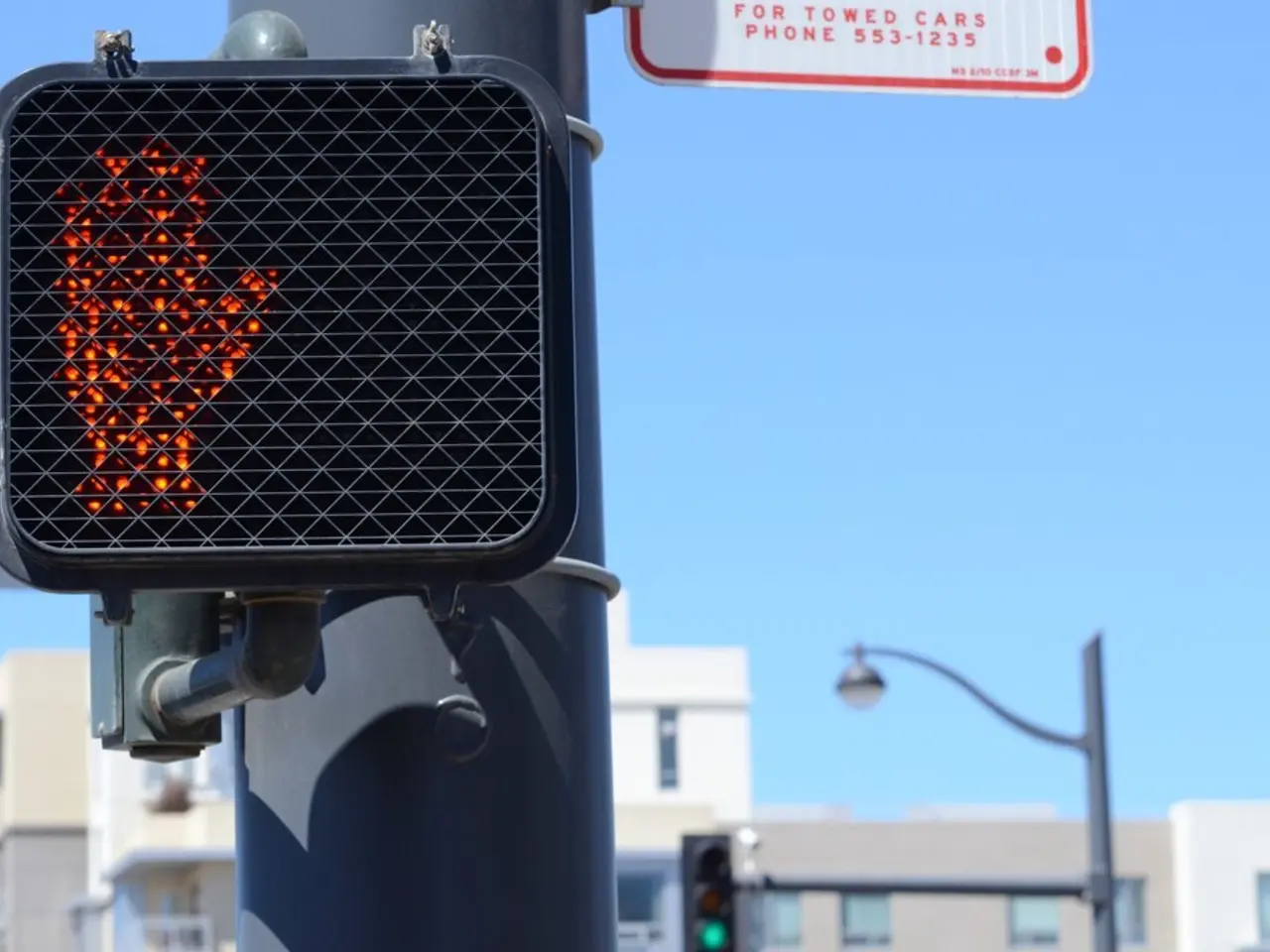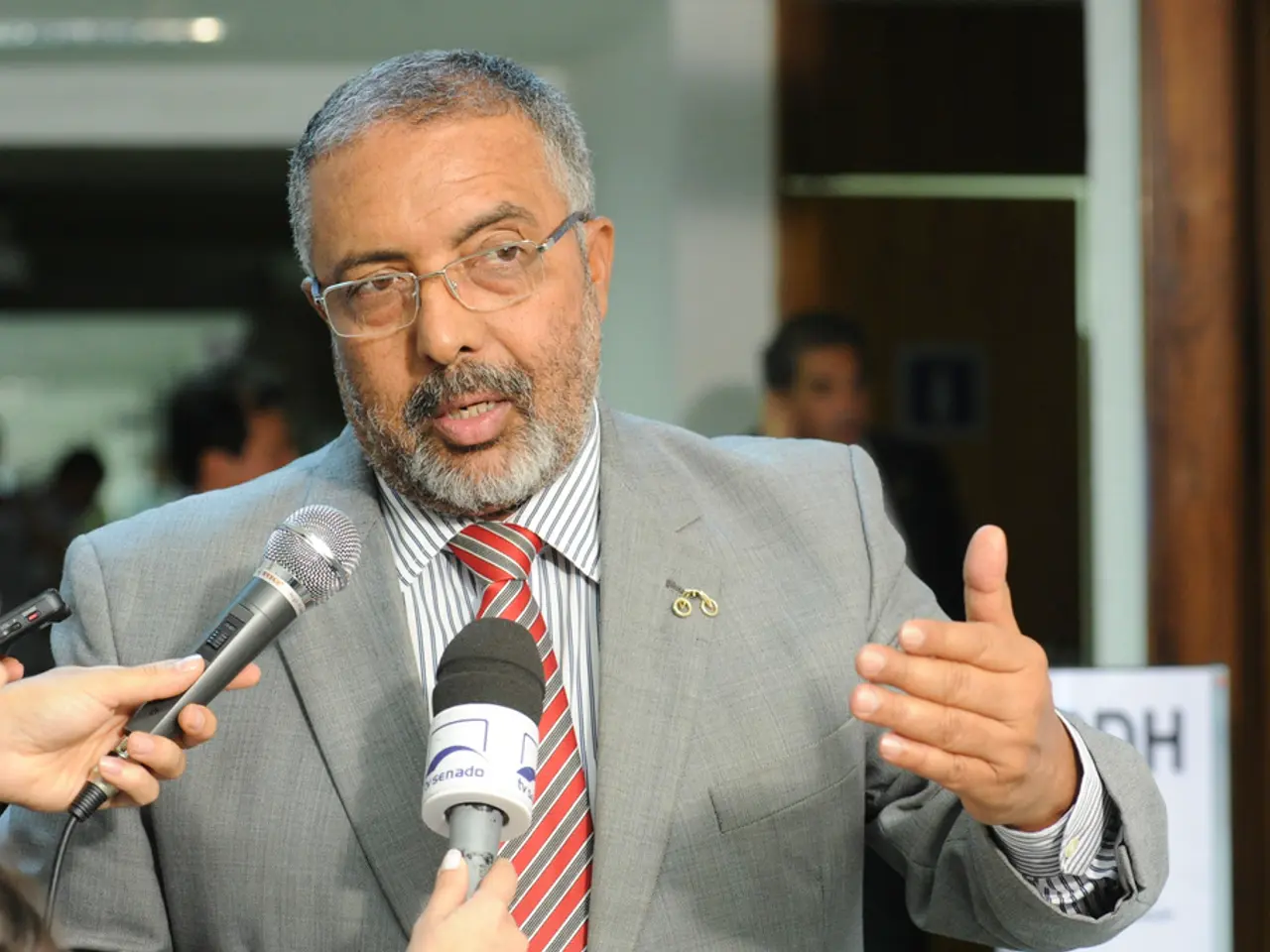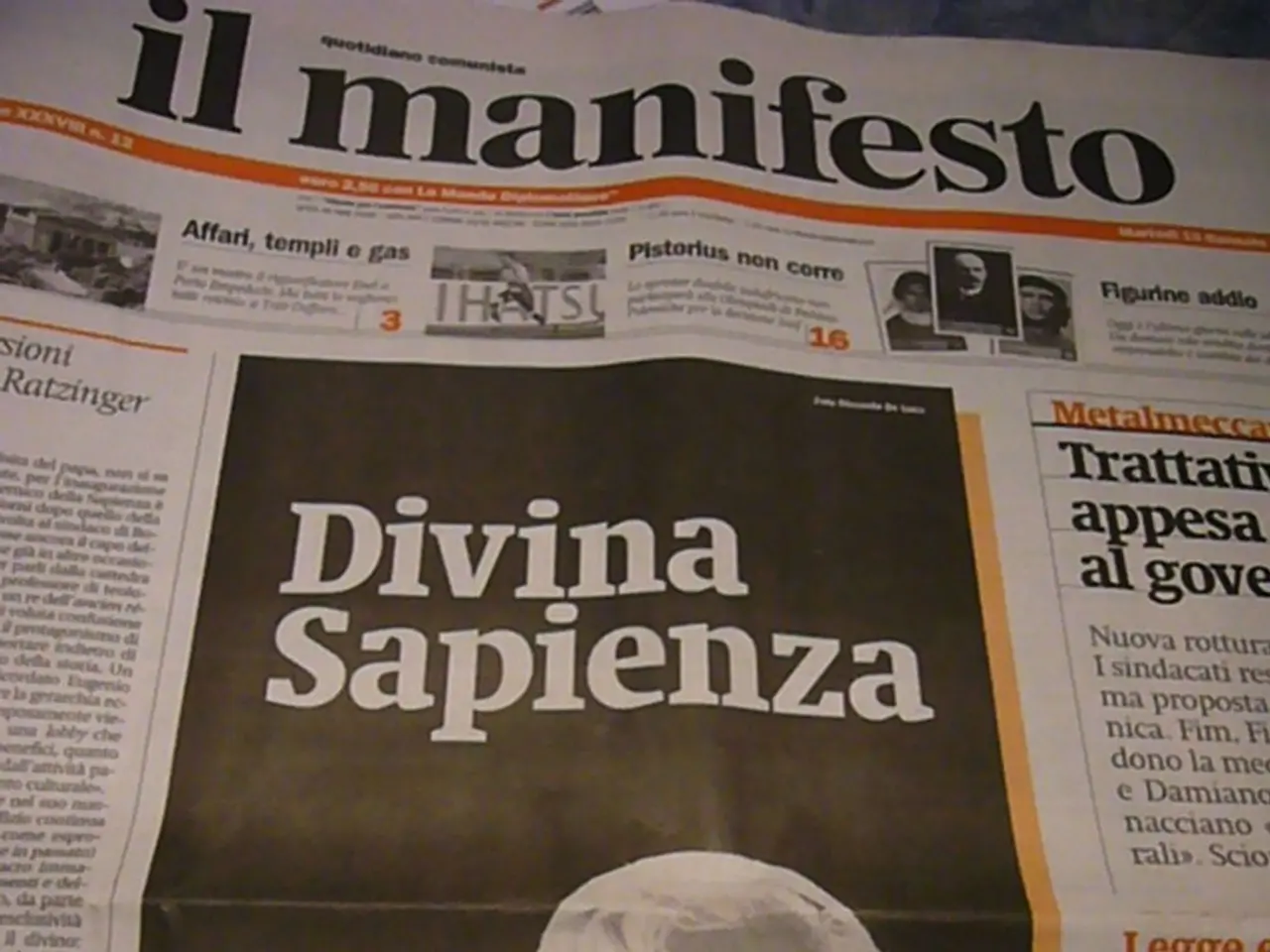"Expert predictions suggest Ovidio Guzman's potential release from imprisonment in five years, with a possibility of living within the United States under protective witness status"
In a significant development, Ovidio Guzman López, son of the notorious drug lord Joaquín "El Chapo" Guzmán, is currently facing multiple federal charges in the U.S. His case could mark a turning point in the drug trafficking landscape in Mexico, potentially leading to substantial cooperation with U.S. authorities and revealing more about the connections between drug cartels and Mexican politics.
Ovidio Guzman, also known as "El Ratón," is accused of conspiracy to import fentanyl, engaging in a continuing criminal enterprise, trafficking fentanyl, and money laundering. His legal team has been negotiating a plea deal with U.S. prosecutors, which could result in reduced sentencing and protection for some family members in exchange for providing intelligence on rival cartels.
The outcome of Ovidio Guzman's case could involve significant cooperation with U.S. authorities, potentially leading to reduced prison time and other benefits for himself and his family members. Reports suggest that 17 members of the Guzmán family, including his mother, wife, and daughters, have already been relocated to the U.S., which might indicate an agreement that includes entry into the witness protection program.
A successful plea deal could also pressure other cartel members to cooperate, potentially revealing more about drug trafficking networks and their connections to Mexican politics. If substantial evidence is uncovered, it could lead to further investigations and legal actions against those implicated in drug trafficking activities, including Mexican politicians often referred to as "narco-politicians."
Mexican Senator Armando Ribeiro Montenegro has suggested that such a plea deal could have a significant impact on these figures, causing them to "tremble" due to the potential revelations. However, the lack of coordination between U.S. and Mexican authorities has been criticized by Mexican President Claudia Sheinbaum, who argues that Mexico should be more involved in these negotiations.
A key hearing will be held on July 9th to discuss the agreement between Ovidio Guzman and the U.S. justice system. If accepted into the US witness protection program, Ovidio Guzman could be released in approximately five years. The US government would provide him with a new identity, a home, a monthly income, and possibly protection for him and his family.
It is worth noting that Ovidio Guzman has reportedly maintained ties with former Mexican officials, including Genaro García Luna and subsequent governments, including those of Enrique Peña Nieto and Andrés Manuel López Obrador. The Casa de Bolsa Vector case, where money laundering operations by the Sinaloa Cartel were allegedly detected, could be linked to Ovidio Guzman's access to the witness protection program.
Montenegro did not rule out that Ovidio Guzman, as a protected witness, could incriminate former Mexican officials. The United States has reportedly negotiated that it would keep a large portion of any illicit profits Ovidio Guzman has accumulated.
Meanwhile, Ovidio Guzman's brother, Joaquín Guzmán Loépez, is expected to appear in court on July 15th. Ismael "El Mayo" Zambada, another key figure in the Sinaloa Cartel, will appear in court on August 25th. The developments in these cases are closely watched, as they could significantly impact the drug trafficking landscape in Mexico and potentially implicate high-ranking Mexican officials.
The legal negotiations for Ovidio Guzman, also known as "El Ratón," may lead to significant cooperation with U.S. authorities, potentially revealing connections between drug cartels and general-news topics such as Mexican politics. If accepted into the US witness protection program, his case could also shed light on drug trafficking networks and their ties to crime-and-justice figures like former Mexican officials.







